第1章
Style, the Latin name for an iron pen, has come to designate the art that handles, with ever fresh vitality and wary alacrity, the fluid elements of speech.By a figure, obvious enough, which yet might serve for an epitome of literary method, the most rigid and simplest of instruments has lent its name to the subtlest and most flexible of arts.Thence the application of the word has been extended to arts other than literature, to the whole range of the activities of man.The fact that we use the word "style" in speaking of architecture and sculpture, painting and music, dancing, play-acting, and cricket, that we can apply it to the careful achievements of the housebreaker and the poisoner, and to the spontaneous animal movements of the limbs of man or beast, is the noblest of unconscious tributes to the faculty of letters.The pen, scratching on wax or paper, has become the symbol of all that is expressive, all that is intimate, in human nature; not only arms and arts, but man himself, has yielded to it.His living voice, with its undulations and inflexions, assisted by the mobile play of feature and an infinite variety of bodily gesture, is driven to borrow dignity from the same metaphor; the orator and the actor are fain to be judged by style."It is most true," says the author of THE ANATOMY OF MELANCHOLY, "STYLUS VIRUM ARGUIT, our style bewrays us." Other gestures shift and change and flit, this is the ultimate and enduring revelation of personality.The actor and the orator are condemned to work evanescent effects on transitory material; the dust that they write on is blown about their graves.
The sculptor and the architect deal in less perishable ware, but the stuff is recalcitrant and stubborn, and will not take the impress of all states of the soul.Morals, philosophy, and aesthetic, mood and conviction, creed and whim, habit, passion, and demonstration - what art but the art of literature admits the entrance of all these, and guards them from the suddenness of mortality? What other art gives scope to natures and dispositions so diverse, and to tastes so contrarious? Euclid and Shelley, Edmund Spenser and Herbert Spencer, King David and David Hume, are all followers of the art of letters.
In the effort to explain the principles of an art so bewildering in its variety, writers on style have gladly availed themselves of analogy from the other arts, and have spoken, for the most part, not without a parable.It is a pleasant trick they put upon their pupils, whom they gladden with the delusion of a golden age, and perfection to be sought backwards, in arts less complex.The teacher of writing, past master in the juggling craft of language, explains that he is only carrying into letters the principles of counterpoint, or that it is all a matter of colour and perspective, or that structure and ornament are the beginning and end of his intent.Professor of eloquence and of thieving, his winged shoes remark him as he skips from metaphor to metaphor, not daring to trust himself to the partial and frail support of any single figure.He lures the astonished novice through as many trades as were ever housed in the central hall of the world's fair.From his distracting account of the business it would appear that he is now building a monument, anon he is painting a picture (with brushes dipped in a gallipot made of an earthquake); again he strikes a keynote, weaves a pattern, draws a wire, drives a nail, treads a measure, sounds a trumpet, or hits a target; or skirmishes around his subject; or lays it bare with a dissecting knife; or embalms a thought; or crucifies an enemy.What is he really doing all the time?
Besides the artist two things are to be considered in every art, -the instrument and the audience; or, to deal in less figured phrase, the medium and the public.From both of these the artist, if he would find freedom for the exercise of all his powers, must sit decently aloof.It is the misfortune of the actor, the singer, and the dancer, that their bodies are their sole instruments.On to the stage of their activities they carry the heart that nourishes them and the lungs wherewith they breathe, so that the soul, to escape degradation, must seek a more remote and difficult privacy.That immemorial right of the soul to make the body its home, a welcome escape from publicity and a refuge for sincerity, must be largely foregone by the actor, who has scant liberty to decorate and administer for his private behoof an apartment that is also a place of business.His ownership is limited by the necessities of his trade; when the customers are gone, he eats and sleeps in the bar-parlour.Nor is the instrument of his performances a thing of his choice; the poorest skill of the violinist may exercise itself upon a Stradivarius, but the actor is reduced to fiddle for the term of his natural life upon the face and fingers that he got from his mother.The serene detachment that may be achieved by disciples of greater arts can hardly be his, applause touches his personal pride too nearly, the mocking echoes of derision infest the solitude of his retired imagination.
In none of the world's great polities has the practice of this art been found consistent with noble rank or honourable estate.
Christianity might be expected to spare some sympathy for a calling that offers prizes to abandonment and self-immolation, but her eye is fixed on a more distant mark than the pleasure of the populace, and, as in gladiatorial Rome of old, her best efforts have been used to stop the games.Society, on the other hand, preoccupied with the art of life, has no warmer gift than patronage for those whose skill and energy exhaust themselves on the mimicry of life.